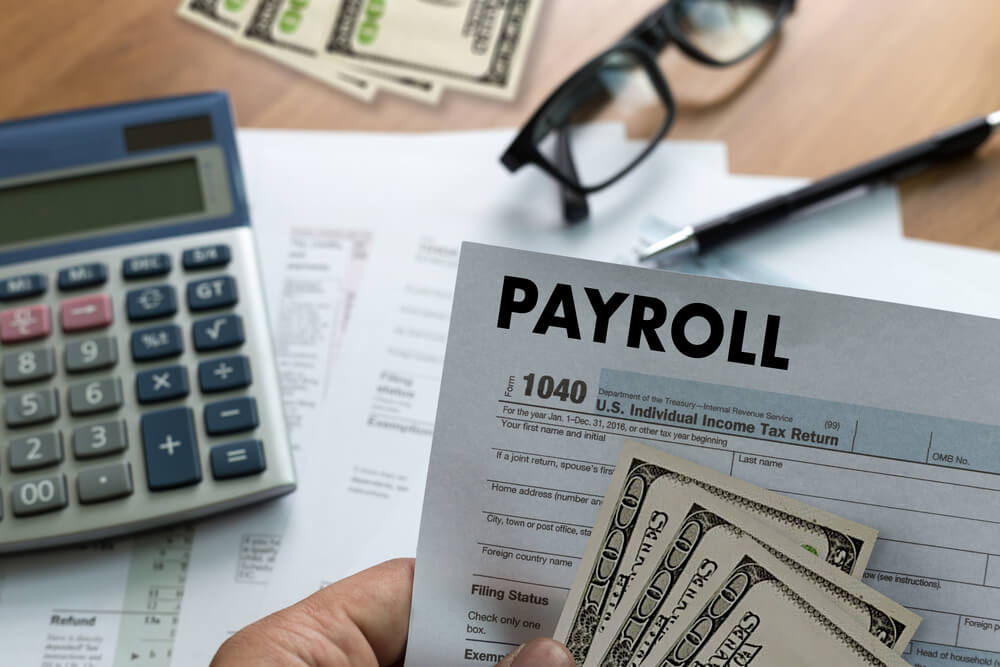Getting your payroll out on time and correctly each month takes an investment of time and resources. Below are some common payroll problems that you could face in this area. You should anticipate these problems and have processes in place to deal with them.
Incorrect Withholding for Taxes and Other Deductions Can Cause Payroll Problems
One of the most common payroll problems is making a mistake with tax withholding. Between state and local taxes and deductions, it is sometimes complicated to get the employee’s withholding correct. The situation gets even more complicated when dealing with other withholdings such as Social Security and 401(k) contributions. Especially when there are new employees, it is not out of the question to have errors on the first paycheck or two.
Furthermore, when there are changes to tax withholding, it may also cause payroll issues. The tax laws are continuously changing, which means your payroll department will have to frequently make adjustments to the payroll inputs. This may result in overpayments to employees or too much withholding being taken out of their checks.

Manual Payroll Processes
Another one of the many payroll problems that your business may face is dealing with manual processes. These result in labor-intensive inputs to the payroll. Not only will this overwork the employees involved, but it also opens things up for more mistakes.
Payroll automation can alleviate both the common errors that people may make when they work by hand and the costs of doing payroll this way. It would require an up-front investment, but it will cut down on mistakes. While staff may be competent and doing the best that they can, when they manually calculate the payroll and print payroll checks, it can only lead to problems.
Timing Problems Making Payroll Late
For your workers, getting paid on time is just as important as getting paid the correct amount. Workers may be living paycheck to paycheck and are relying on each payment to keep the roofs over their heads. However, running the payroll processes can take some time. When there is any hiccup or thing that sets back the process, it can delay payroll from going out.
There is very little margin for error when it comes to making payroll. Even if the problems slow the process down for a day, it can result in late paychecks. You are at risk when you use both manual and automatic processes. However, there is more of a chance that you could miss the payroll date when there is human input that could slow down the checks. Building in enough lead time that gives the business room for error is one way to ensure that payroll is made on time.
Getting Overtime Wrong Can Lead to Payroll Difficulties
Some employees are legally required to be paid for overtime if they work beyond their scheduled hours. However, your payroll system may have difficulty picking up the hours and classifying them properly. The business could either miscalculate the number of extra hours that were worked or pay them out at the incorrect rate.
In most cases, employees must be paid a higher wage for overtime worked. It can often be a challenge for payroll to calculate the payment using the standard 1.5 times the normal rate for overtime. This will result in an overpayment or underpayment that will need to be fixed.
Failing to Account for Bank Holidays Is Another Payroll Challenge
Bank holidays can throw your payroll efforts into confusion if you do not properly account for them. Even if the payroll is not due on the holiday itself, the bank holiday can still cause a delay. Checks usually cannot be issued on the day when the bank is closed.
Companies need to keep close track of all bank holidays and plot out where they fall in the payroll process. If there is a bank holiday, the company needs to print payroll checks a day earlier. On cycles where there is a holiday, you should generally begin the process earlier to give some extra leeway. The worst thing that can happen is to be late with the payroll after failing to account for the holiday.
Payroll Issues Can Include Incorrect Classification of Employees
When thinking about payroll problems and solutions, you should also think about worker classification. In all likelihood, not everyone you’re paying is a full employee of your company. You could also be cutting checks to independent contractors.
Employees and independent contractors get treated differently when it comes to withholding. For example, independent contractors are responsible for paying their own self-employment taxes after they are paid. In addition, there are other deduction issues that the payroll system will need to keep straight. Your business will even report these employees’ earnings differently to the IRS.
Given the focus on the distinction between employees and independent contractors, you may get in trouble if you misclassify the employees. You could also end up on the receiving end of a lawsuit. This is why it is important to keep the separate categories straight.
Employees in Different States Can Lead to Payroll Difficulties
Another challenge in the area of payroll problems and solutions is when you have employees who live in different states from where your business is located. This means that you will need to comply with other state laws and systems when it comes to tax withholding. You’ll need to report earnings to multiple states and feed data to different jurisdictions.
Before you put a worker from a different state on the payroll, you need to make sure that your processes are built to handle such a situation. You would require a system that can handle multiple inputs and can be programmed to deal with several different jurisdictions. Before they print payroll checks, your payroll employees should understand the different state laws if your workforce is geographically diverse.

Payroll Issues Can Include Garnishment Errors
Many businesses do not anticipate how many employees are having their wages garnished for one reason or another. Whether it is for failure to pay child support or an unpaid tax bill to the IRS, many workers will have parts of their pay taken each period. In fact, roughly 10% of workers will have money taken out of their checks.
Employers can be on the hook for the employee’s debt if they fail to properly garnish the wages in accordance with a court order. There is a risk to your company, even if you are not the subject of the court order.
When it comes to payroll, you do not need to be on your own. There are professionals available who can handle all the details. Given the risks involved, getting help may be a smart idea. Contact us at Checkissuing.com to learn more about our payroll solutions.







